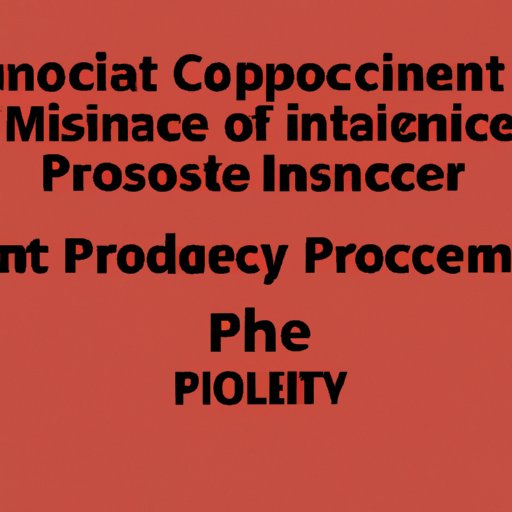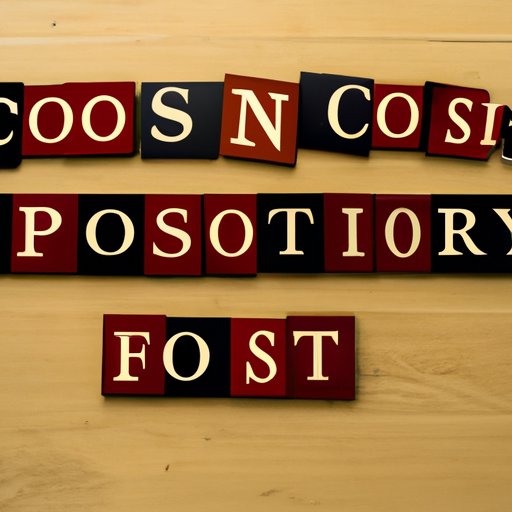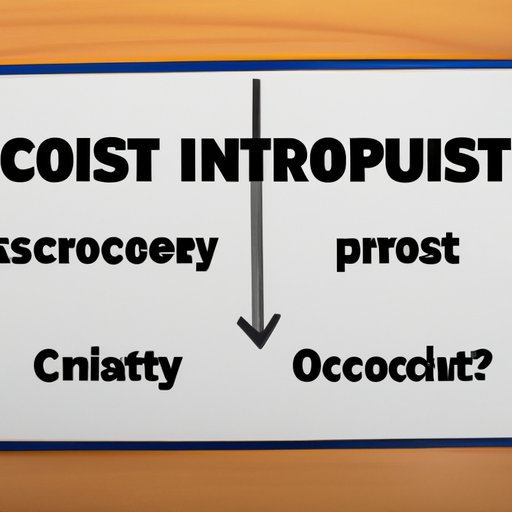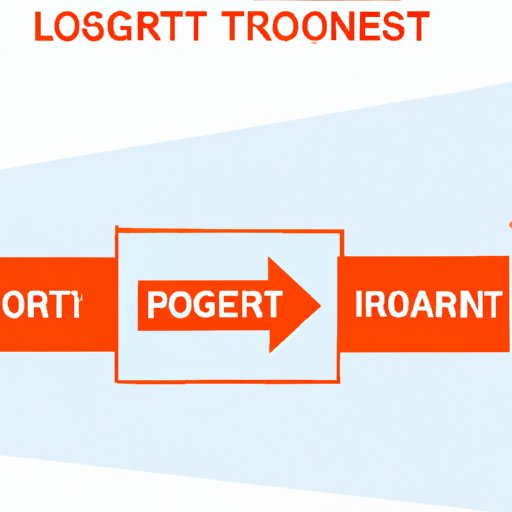Introduction
Opportunity cost is an important concept to understand when making any kind of decision. It refers to the value of a potential action or opportunity that is sacrificed when another action or opportunity is chosen instead. In other words, it’s the cost of choosing one option over another. This article will explore how opportunity cost affects decision making and provide tips for analyzing and leveraging this concept.
Exploring Opportunity Cost: How It Impacts Decision Making
When making decisions, it’s important to consider the potential opportunity cost. This involves identifying the potential opportunities that could have been taken, analyzing the potential outcomes of each option, and understanding the implications of choosing one option over another. By taking the time to analyze opportunity cost, you can make more informed decisions.
Identifying Opportunity Costs
The first step in considering opportunity cost is to identify the potential options that could be taken. For example, if you are deciding whether to invest in a new business venture, you should consider the potential opportunity costs associated with the investment. You might consider the cost of investing in other types of businesses, the cost of not investing, or the cost of delaying the investment.
Analyzing Potential Outcomes
Once you have identified the potential options, you need to analyze the potential outcomes of each option. This involves looking at the risks and rewards associated with each option. For example, if you are considering investing in a new business venture, you should consider the potential profits, losses, and other risks associated with the venture.
Understanding the Implications of Opportunity Cost
Finally, it is important to understand the implications of opportunity cost on your decision making. Opportunity cost can have both short-term and long-term effects. For instance, if you choose to invest in a new business venture, the short-term effect might be the loss of capital that could have been used for other investments. The long-term effect might be the potential for increased profits or losses from the venture.
Analyzing the Effects of Opportunity Cost on Decision Making
When making decisions, it’s important to consider the effects of opportunity cost on your decision making. This includes assessing the short-term and long-term effects, assessing the risk versus reward, and considering the impact of opportunity cost on different scenarios.
Short-term vs Long-term Effects
It’s important to consider both the short-term and long-term effects of opportunity cost. For example, if you are deciding whether to invest in a new business venture, the short-term effect might be the loss of capital that could have been used for other investments. The long-term effect might be the potential for increased profits or losses from the venture.
Assessing Risk vs Reward
When making decisions, it’s also important to assess the risk versus reward associated with each option. This involves looking at the potential rewards and risks of each option, and determining which option offers the best return on investment. As Harvard Business Review states, “Risk and reward go hand in hand, so it’s important to weigh the potential risks against the potential rewards before making a decision.”
Considering the Impact of Opportunity Cost On Different Scenarios
It’s also important to consider the impact of opportunity cost on different scenarios. For example, if you are deciding whether to invest in a new business venture, you should consider the potential profits and losses associated with the venture, as well as the potential risks and rewards associated with other investments. By analyzing the potential outcomes of different scenarios, you can make more informed decisions.

Understanding How Opportunity Cost Influences Decisions
To understand how opportunity cost influences decisions, it’s important to compare the benefits of one option to another. This involves examining the alternatives and their associated costs, as well as analyzing the benefits of taking a pass on an opportunity. For example, if you are deciding whether to invest in a new business venture, you should consider the potential profits and losses associated with the venture, as well as the potential risks and rewards associated with other investments.
Comparing the Benefits of One Option to Another
When making decisions, it’s important to compare the benefits of one option to another. This involves examining the alternatives and their associated costs, as well as analyzing the benefits of taking a pass on an opportunity. This can help you determine which option offers the best return on investment.
Examining the Alternatives and Their Associated Costs
When making decisions, it’s important to examine the alternatives and their associated costs. For example, if you are deciding whether to invest in a new business venture, you should consider the potential profits and losses associated with the venture, as well as the potential risks and rewards associated with other investments. By analyzing the potential outcomes of different scenarios, you can make more informed decisions.
Analyzing the Benefits of Taking a Pass on an Opportunity
Finally, it’s important to consider the benefits of taking a pass on an opportunity. This involves looking at the potential risks and rewards associated with not taking the opportunity, as well as the potential risks and rewards associated with taking the opportunity. By analyzing the potential outcomes of different scenarios, you can make more informed decisions.

Examining the Impact of Opportunity Cost on Personal and Business Decisions
When making decisions, it’s important to consider the impact of opportunity cost on personal and business decisions. This includes evaluating the financial implications of different decisions, considering the considerations for different types of businesses, and balancing profit with responsibilities.
Evaluating Financial Implications
When making decisions, it’s important to evaluate the financial implications of different decisions. This involves looking at the potential profits and losses associated with each decision, as well as the potential risks and rewards associated with each decision. By analyzing the potential outcomes of different scenarios, you can make more informed decisions.
Considerations for Different Types of Businesses
When making decisions, it’s important to consider the considerations for different types of businesses. For example, if you are running a small business, you should consider the potential costs and benefits associated with different investments, as well as the potential risks and rewards associated with different strategies. By analyzing the potential outcomes of different scenarios, you can make more informed decisions.
Balancing Profit with Responsibilities
Finally, it’s important to balance profit with responsibilities. This involves looking at the potential profits and losses associated with different decisions, as well as the potential risks and rewards associated with different strategies. By analyzing the potential outcomes of different scenarios, you can make more informed decisions that are beneficial for both your business and your customers.

The Role of Opportunity Cost in Decision Making
Opportunity cost plays an important role in decision making. It helps you set priorities, build strategies, and leverage resources. By understanding the concept of opportunity cost and its implications, you can make better decisions that are beneficial for both your business and your customers.
Setting Priorities
Opportunity cost can help you set priorities when making decisions. By understanding the potential costs and benefits associated with different options, you can prioritize the most important decisions and allocate resources accordingly.
Building Strategies
Opportunity cost can also help you build strategies when making decisions. By understanding the potential costs and benefits associated with different options, you can develop strategies that maximize the potential rewards and minimize the potential risks.
Leveraging Resources
Finally, opportunity cost can help you leverage resources when making decisions. By understanding the potential costs and benefits associated with different options, you can utilize existing resources in the most efficient manner to achieve the desired outcome.
Evaluating Opportunity Costs and Its Impact on Decision Making
When making decisions, it’s important to evaluate opportunity costs and its impact on decision making. This involves developing best practices, calculating opportunity costs, and optimizing decisions.
Developing Best Practices
When making decisions, it’s important to develop best practices for evaluating opportunity costs. This involves looking at the potential risks and rewards associated with different options, as well as the potential costs and benefits associated with different strategies. By analyzing the potential outcomes of different scenarios, you can develop best practices for evaluating and optimizing decisions.
Calculating Opportunity Costs
When making decisions, it’s important to calculate opportunity costs. This involves looking at the potential profits and losses associated with different options, as well as the potential risks and rewards associated with different strategies. By analyzing the potential outcomes of different scenarios, you can calculate the true cost of each decision.
Optimizing Decisions
Finally, it’s important to optimize decisions by considering the impact of opportunity cost. This involves looking at the potential risks and rewards associated with different options, as well as the potential costs and benefits associated with different strategies. By analyzing the potential outcomes of different scenarios, you can make more informed decisions that are beneficial for both your business and your customers.
Conclusion
Opportunity cost is an important concept to understand when making any kind of decision. It refers to the value of a potential action or opportunity that is sacrificed when another action or opportunity is chosen instead. By taking the time to analyze opportunity cost, you can make more informed decisions that are beneficial for both your business and your customers.
(Note: Is this article not meeting your expectations? Do you have knowledge or insights to share? Unlock new opportunities and expand your reach by joining our authors team. Click Registration to join us and share your expertise with our readers.)
